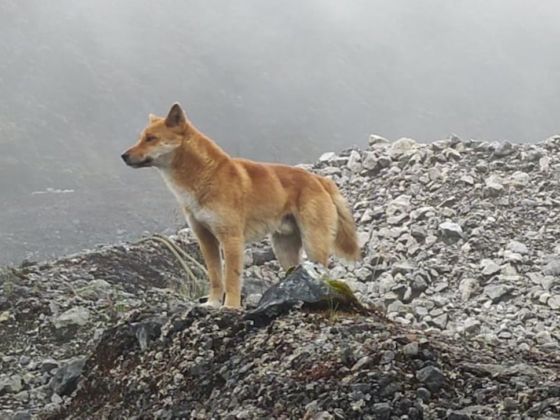Singing dogs might sound like one of those old-fashioned circus sideshows, but they’re an actual type of canine. The New Guinea singing dog, the rarest and most ancient dog-like animal currently alive, was thought to be extinct in the wild but was recently proven to be very much alive on the Indonesian side of the island thanks to sightings and DNA tests.

New Guinea Singing Dog, Thought to Be Extinct, Was Just Rediscovered in the Wild
While they’re called “New Papua singing dogs” by outsiders for their unique vocalizations, the Indonesian locals call them “highland wild dogs” since they’re found on the highlands of the island that’s divided between Papua New Guinea and the Indonesian province of Papua.
In 2016, zoologist James McIntyre, president of the New Guinea Highland Wild Dog Foundation began an expedition to the area to find evidence of the dog’s continued existence. He captured 149 photographs of 15 dogs. In 2018, he went back to the highlands and collected DNA samples from three dogs.
As per the study, published in Proceedings of the National Academy of Sciences of the United States of America, once compared to that of the New Papua singing dogs who have been in captivity for decades, the Highland Wild dog’s DNA showed significant similarities — they have 72 percent of their genes in common — but the wild dogs show much more genetic varieties than the captive ones that have been in-bred for many years.
According to Dr. Heidi Parker, staff scientist at the National Human Genome Research Institute, “We found that New Guinea singing dogs and the highland wild dogs have very similar genome sequences, much closer to each other than to any other canid known. In the tree of life, this makes them much more related to each other than modern breeds such as German shepherds or basset hounds.”
The findings may help scientists learn more about human vocalization, save the New Guinea singing dogs by providing more genetic diversity, and teach us about the lineage of canines and their domestication.